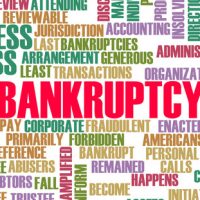Are You a Small Business Considering Bankruptcy?

For a long time, small businesses had basically one bankruptcy option—Chapter 7 liquidation. If they wanted to continue to operate, they would have to file for Chapter 11 protection, which had onerous paperwork requirements. Fortunately, Congress stepped up to the plate and passed the Small Business Reorganization Act of 2019, which is called Subchapter V.
Subchapter V bankruptcies are streamlined. A business gets all of the benefits of going through Chapter 11—principally, restructuring loans—without many of the hoops larger companies must jump through.
It is a good option for our business clients. However, coming changes in the bankruptcy law mean that a business should act now if they want to file for Chapter 11 protection.
Debt Limits
Congress didn’t make the streamlined Subchapter V option available to all businesses. Instead, there are key limitations, one of which is a maximum limit on debt. Ordinarily, a business cannot have more than $2,725,625 in secured and unsecured debt.
However, the CARES Act that Congress passed in April 2020 temporarily raised the debt limit to $7,500,000—almost three times as much. This allows many more small businesses to take advantage of the simplified Chapter 11 approach.
Unfortunately, there’s a big catch: the higher limit expires on March 27, 2021, whereupon it will fall back down to around $2,700,000 (the amount is adjusted regularly for inflation). If you are considering whether your company should file for bankruptcy, you might want to do it now rather than later. So long as you file before March 27, you can take advantage of the higher debt limits. If you wait too long, you won’t be able to take advantage of the Small Business Bankruptcy option.
Reorganize Your Debt the Smart Way
A company does not need to be on the verge of shutting off the lights to take advantage of bankruptcy. Many clients have debts and leases that no longer work for them. They might have significant liens that encumber their business assets. A business can rework all of these in a bankruptcy so that they emerge from the coronavirus pandemic on firmer financial footing.
Chapter 11 gives the savvy business owner the upper hand when trying to pare back on debt. Ultimately, the judge can force creditors into accepting a repayment plan that pays them less than they are owed. Some secured debts might also become unsecured through the bankruptcy process.
Without bankruptcy, a business must work individually with each creditor, any one of which can go into court and sue on the debt. No business is required to rework the terms of its debt outside of bankruptcy court, so filing for Chapter 11 is a good way to get them to come to the negotiating table in an honest fashion.
Let’s Talk About Whether Chapter 11 is Right for You
Nowack & Olson, PLLC has helped many family and small businesses in South Florida go through bankruptcy. Call our Plantation bankruptcy attorneys today to schedule an initial consultation. We will discuss your options and help you decide whether filing for Chapter 11 is your best bet.
Resources:
forbes.com/sites/robertbovarnick/2021/12/28/the-year-in-bankruptcy/?sh=4482a9c0264d
law.cornell.edu/uscode/text/11/chapter-11/subchapter-V
